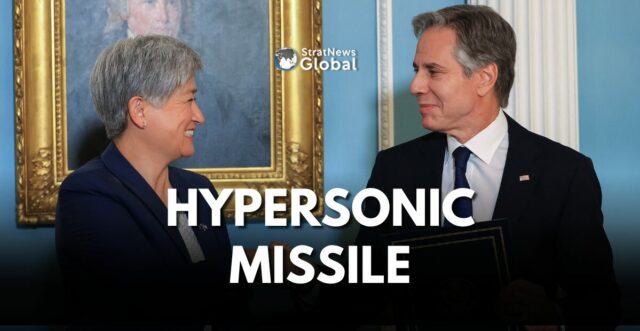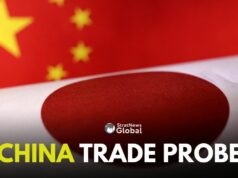The joint production of hypersonic missiles by Australia and the United States could alleviate the strain on the U.S. defence industrial base and strengthen deterrence in the Indo-Pacific region, according to U.S. Republican lawmaker Michael McCaul. Speaking in Sydney on Friday, McCaul, who chairs the U.S. House Foreign Affairs Committee, emphasised that this collaboration exemplifies how streamlined licensing of sensitive U.S. defence technology can help the U.S. compete with China in the race to develop advanced weapons.
Hypersonic Missile Collaboration
Hypersonic missiles, capable of travelling more than five times the speed of sound in the upper atmosphere, have become a focal point of international military competition. China tested a hypersonic missile in 2021, triggering a technology race with the U.S. and raising concerns among NATO members after Russia employed similar weapons in the Ukraine war.
“A Chinese hypersonic weapon could hit Australia in a matter of minutes, and Australia cannot stop that right now. So we need to catch up to that,” McCaul warned. He noted that Australia’s involvement in the production of these cutting-edge weapons would not only strengthen its defence capabilities but also relieve pressure on the U.S. defence industrial base.
Australia is currently testing a Hypersonic Attack Cruise Missile (HACM) in collaboration with the United States. This missile, which could be deployed on fighter jets, represents a significant step forward in Australia’s defence strategy. The defence and foreign ministers of both countries highlighted the importance of this partnership following recent talks.
AUKUS Partnership And Strategic Implications
McCaul’s visit to Australia centred on the AUKUS alliance—a trilateral security pact between Australia, the United States, and Britain aimed at transferring nuclear-powered submarines to Australia and developing advanced defence technologies. He stressed that AUKUS is a prime example of a U.S. ally taking greater responsibility for its own defence, a move likely to receive bipartisan support in the U.S., even if Donald Trump is re-elected as president.
“AUKUS talks had started under the Republican Trump presidency,” McCaul noted, adding that he expects continued strong support for the alliance.
The rotational deployment of U.S. nuclear submarines through Australia, as part of AUKUS, serves as a significant deterrent in the Indo-Pacific region, particularly in light of increasing Chinese pressure on the Philippines in the South China Sea. McCaul pointed out that Chinese President Xi Jinping is likely concerned about the implications of this alliance, particularly the introduction of nuclear submarines and other innovative technologies into the region.
Chinese Concerns
China has expressed its opposition to the AUKUS alliance, with the Chinese foreign ministry stating this week that AUKUS “harms efforts” to maintain peace and security in the region and exacerbates the arms race. Despite these concerns, McCaul and other U.S. officials remain committed to strengthening defence ties with Australia and other regional allies as a means of countering Chinese influence.
(With Inputs from Reuters)
Research Associate at StratNewsGlobal, A keen observer of #China and Foreign Affairs. Writer, Weibo Trends, Analyst.
Twitter: @resham_sng





